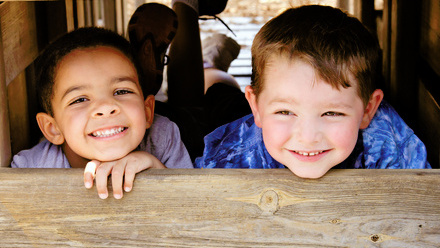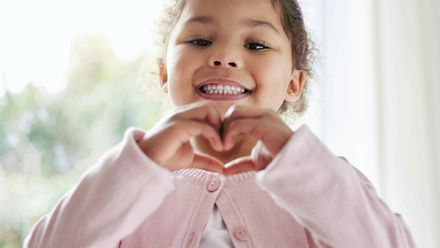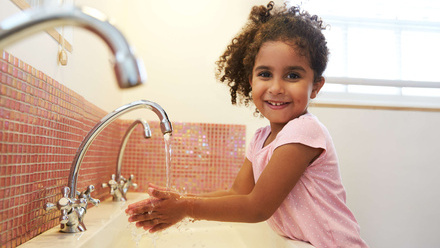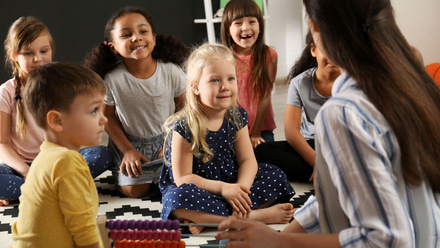Children's mental health: how can we support children’s personal development?
Personal development is integral to a child’s health and wellbeing in a variety of ways. Whilst it is intrinsic to personal, social and emotional development (commonly known as PSED), personal development skills play a special role of their own to ensure independence, self-esteem, and safety for children throughout their early years. It's a huge factor in developing strong mental health practices and wellbeing in the early years.
It is important to remember that every child is unique and, as such, develops in their own unique ways. Whilst development milestones give a helpful guide for where and how we can support children to grow, these indicators are not set in stone and can appear very differently for different children.
So, what is personal development and how does it impact children's mental health?
As we grow, we begin to make our own decisions and have our own desires, we want independence to try new things, and we develop an ability to know what we need, feel good about ourselves, and encouraged to grow. Our personal development encompasses all these aspects and relates to how we develop as an individual.
What might this look like?
Babies have fascinating personalities and their personal development starts from day one. Infant mental health should be supported from the earliest age to ensure healthy development across personal, social and emotional growth. Some ways you might see personal development growth in children from birth to two include:
-
Sense of self increases as they explore the room more and become more ‘visible’ in the space
-
Growing confidence to interact with others and trust grown-ups they are forming relationships with
-
Indicate likes and dislikes, on a basic level. They might appear to be irrational preferences at this stage.
-
As babies become more mobile, they might express more independence to move by themselves and refuse help.
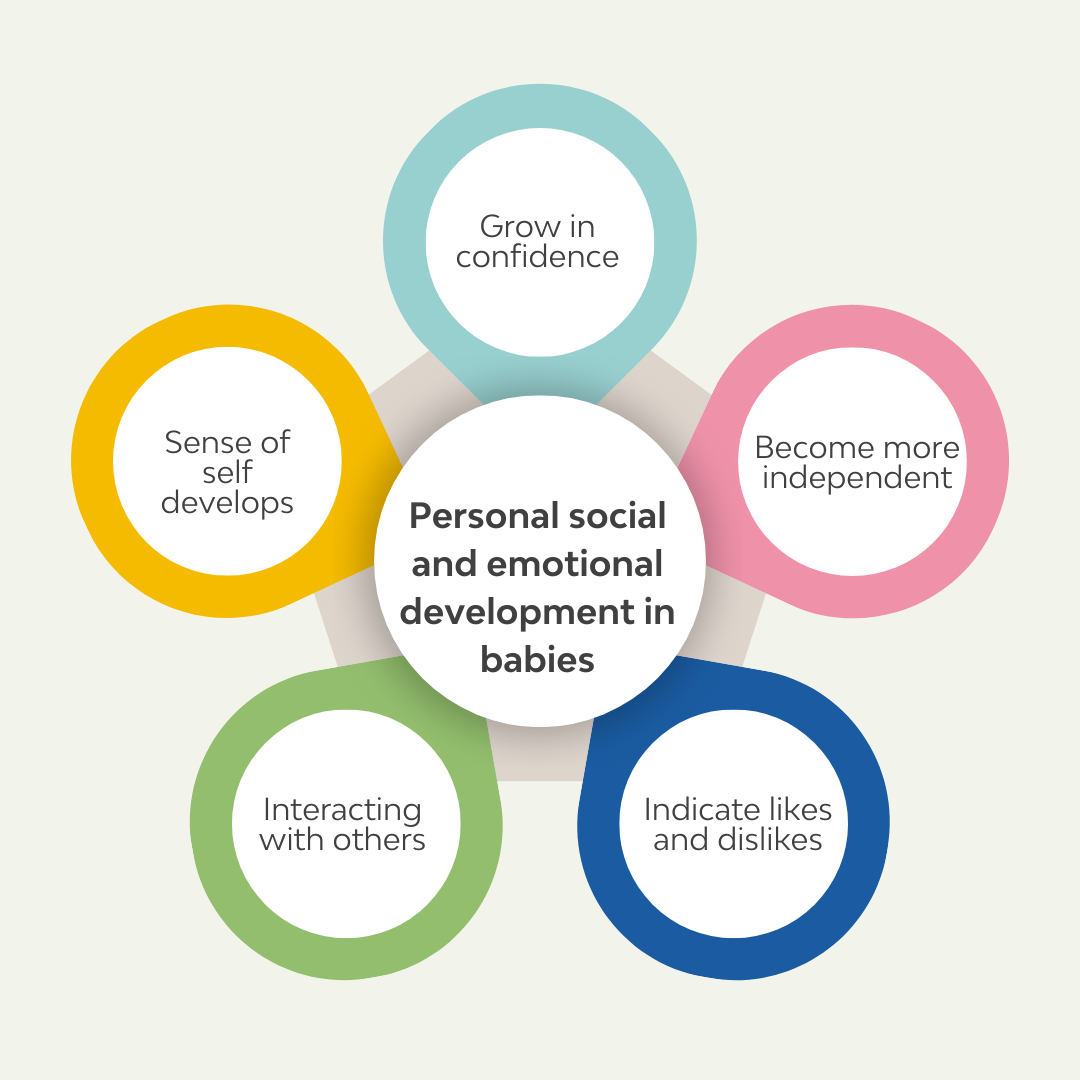
Toddlers, as they begin to acquire more language to communicate verbally, are able to express their preferences and become even more resolute on their independence. Young children can appear quite egocentric at this age because they are constantly exploring their own bodies and discovering their sense of belonging in an ever-changing environment. Some ways you might see personal development thriving in toddlers three to five years old include:
-
Stronger determination to do things independently and perseverance to complete tasks alone, with potentially emotional reactions when others intervene.
-
Developed interest in self-care routines and activities, such as brushing teeth and washing. This feeds directly into growing mental health practices.
-
A more established sense of belonging, understanding of family dynamics and can identify ‘significant’ people in their lives.
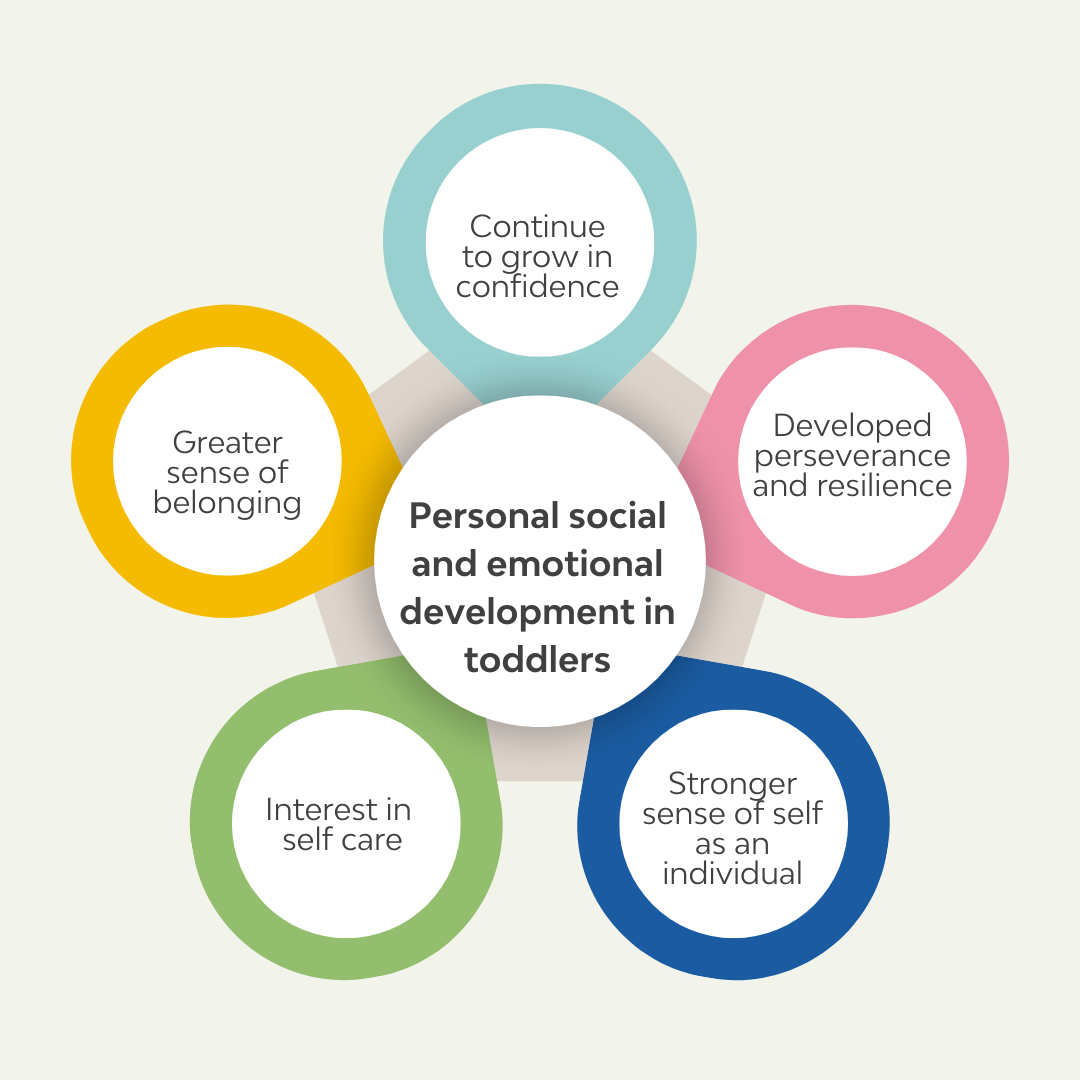
Here are some ways to create rich PSED activities and apply its meaning and outcomes to your wider setting curriculum:
-
Oral health plays a valuable part of wider health and wellbeing but also a key factor in self-care for children as soon as they cut their teeth. Create a dentist roleplay to allow children to explore teeth brushing in a fun and enabling environment to encourage these vital skills within their daily routine.
-
Independence is key and great for our mental health! Though sometimes more time-consuming, it is worth all the time in the world to allow children to explore things themselves and cultivate a sense of achievement when they do things all by themselves! From putting shoes on for the garden to choosing snacks themselves, give children as many opportunities as possible to incorporate choice into the day, and plan for the additional time for this vital learning
-
A strong sense of self can produce a life-long impact on self-esteem and confidence. Utilise opportunities such as story times to allow children to share their experiences and to feel valued by others.
Personal development is just one aspect of suporting children's mental health and their wider holistic development but, nonetheless, plays a valuable role in giving children a sense of self and support their growing confidence for all areas of development. Early education and care professionals hold a valuable position to give young children the opportunity to grow surrounded in a supportive network that values their individual place in the world.
For further information around approaches and practices to support personal, social and emotional development in the early years, check out supporting resources at the EEF Early Years Evidence Store.

